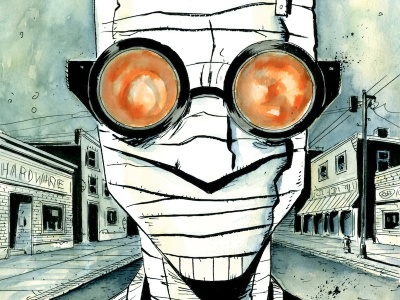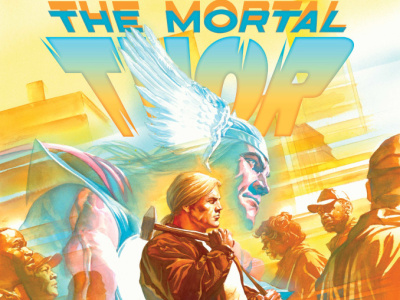
Garo, the leading avant garde comics anthology in Japan has begun a unique program of web sales in conjunction with Seirindoh Net. Com. Garo, whose roots go back to 1964, has been compared with Raw Magazine, since it is an anthology of works by cutting edge cartoonists. To peruse the Digital Garo site, which contains groundbreaking alternative works by Tsuge Yoshiharu and Nekojiru, among others, readers have to pay a fee of 2,400 yen (about $21 US) to view the site for a three-month period. An English language Garo site is currently providing free downloads of several classic Garo stories including 'Robot Worker' by Nekojiru. The way in which the English language Garo site is set up with flashing 'Free' signs by all the downloads certainly makes it appear that this site will also soon be restricted to those who pay for access.
Though Japan has a much more comic-oriented culture than we do here in the states (40% of all book purchases in Japan are manga titles), the Japanese comic avant garde struggles as much, or more than does its counterpart here in the U.S. A cynical way of looking at the situation would be to say that Japan just has many more comic genres, where creators cater to the tastes and expectations of their respective audiences as much or more than artists who work on mainstream superhero titles here in the States. So, in spite of all the manga sales, uncompromising creators in Japan are still left with the task of winning audiences for unconventional works, a difficult feat in any culture. Digital Garo is an interesting experiment in funding the work of the comic avant garde. Prospects for immediate success appear slim since paying for access goes against the Internet ethic which stresses free viewing.
If selling access to these comics online does succeed somehow, what effect will it have on sales of the Garo magazine? Could it spread to more popular publications? Will it eventually become a way to cut both the publisher and the retailer out of the loop? At this point it appears highly unlikely that this sort of delivery system could supplant in-store sales. Retailers have much more to worry about from online booksellers selling new trade paperback collections and from online 'swap or sell' trading in vintage comics. Still necessity is the mother of invention, and if creators feel that access to the marketplace is being denied by publishers, distributors, retailers, or even by the indifference of the current audience that shops in traditional channels, the internet provides a potential end-run around all these obstacles.







